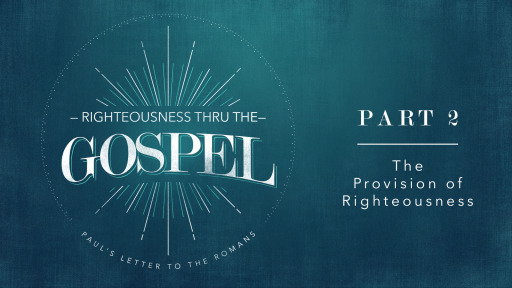Present Yourself to God - Rom. 6:8-14

Notes
Transcript
Sermon Tone Analysis
A
D
F
J
S
Emotion
A
C
T
Language
O
C
E
A
E
Social
A concert violinist in New York’s Carnegie Hall was once asked how she became so skilled. Her response was that it was by “planned neglect.” She planned to neglect everything that was not related to her goal.
Michael P. Green, 1500 Illustrations for Biblical Preaching (Grand Rapids, MI: Baker Books, 2000), 101.
And so goes our passage for today. To present yourself, as a follower of Christ, to your new King - there must be a planned neglect of your older ruler.
Last week we looked at the first seven verses of chapter six and concluded:
Sin does not rule Believers any longer! In dependence on God’s grace, we can experience progressive growth in sanctification as we faithfully submit to gospel truth.
In fact, Paul said (beginning in v. 6 of this chapter):
6 knowing this, that our old man was crucified with Him, that the body of sin might be done away with, that we should no longer be slaves of sin.
7 For he who has died has been freed from sin.
There has been a death that occured at the moment of conversion. The second you responded to the gospel in repentance and faith, the old you died.
It was illustrated in vv. 3-5 with the picture of the immersion of baptism - how the old man is immersed in the likeness of Christ’s death and the new man is raised in the likeness of Christ’s resurrection.
And this death and new life results in a liberation because (v.7) “he who has died has been freed from sin.”
Literally, in the greek, freed means to be justified or cleared.
Paul is saying that the one who identifies with Christ’s death by responding to the Gospel has become judicially vindicated - He is no longer bound by it or its demands.
So Paul then speaks in vv. 8-11 about Present and Future Liberation - what does this cleared life look like?
8 Now if we died with Christ, we believe that we shall also live with Him,
9 knowing that Christ, having been raised from the dead, dies no more. Death no longer has dominion over Him.
10 For the death that He died, He died to sin once for all; but the life that He lives, He lives to God.
v. 8 - Paul makes an if, then statement.
If someone has indeed died with Christ (meaning they have responded to the Gospel), then they will also live with Him.
Live - in future tense - meaning there are realities of this liberation that are yet to be fully experienced.
v.9 - we base this on “knowing” that Christ who has been raised from the dead, dies no more.
His earthly body was transformed into a glorified body that is no longer susceptible to death and represents the immortal life that awaits those who have faith in Him.
It was because of our sin that death fixed its grip on Jesus, but he arose victorious over sin, death, hell, and the grave.
Not only does sin no longer rule over the believer (v. 7-8), but the curse of sin doesn’t either. Death no longer rules, because we died with Christ, who no longer dies.
v. 10 - There has been an irreversible transformation take place in this liberation we are speaking of.
Christ only had to die once. He doesn’t have to keep dying. In fact, His one death translated into His life that keeps on living.
Therefore.
11 Likewise you also, reckon yourselves to be dead indeed to sin, but alive to God in Christ Jesus our Lord.
v. 11 - Believers also experience an irreversible transformation at conversion. Where v. 6 tells us the Old Man is dead. We now see, as a new creation, we are alive to God.
We see in a similar passage that Paul wrote:
17 Therefore, if anyone is in Christ, he is a new creation; old things have passed away; behold, all things have become new.
It is clear that for those who have responded to the Gospel, there is a present and future liberation. Things are different now and we know they will only get better in the future. We have been freed from the power of sin over us today, and we will eventually be freed from the very presence of sin in time to come.
So not only is there present and future liberation, but there is also a dimension of present and future submission.
You see because of what we know to be true about our liberation, Paul says in the next few verses, that we are to respond to it with submission.
12 Therefore do not let sin reign in your mortal body, that you should obey it in its lusts.
v. 12 - because of the liberating work Christ accomplished, Paul says, don’t let sin reign any longer.
Before Christ, you were under the kingship of sin. In fact, you didn’t have the option but to submit to it (v. 12b) in its passions.
As Paul uses the term Reign here, the picture is clear.
Sitting on the throne of your heart was sin and all of its manifestations. And as the monarch on the throne of the heart, and we all obeyed it.
5 Therefore put to death your members which are on the earth: fornication, uncleanness, passion, evil desire, and covetousness, which is idolatry.
Illustration: Living Sacrifices
1500 Illustrations for Biblical Preaching Dedication
The only problem with “living sacrifices” is that they keep crawling off the altar.
